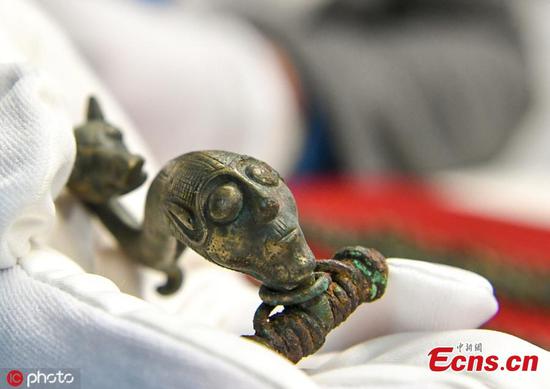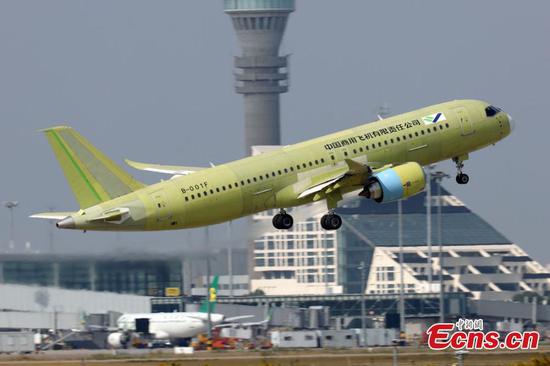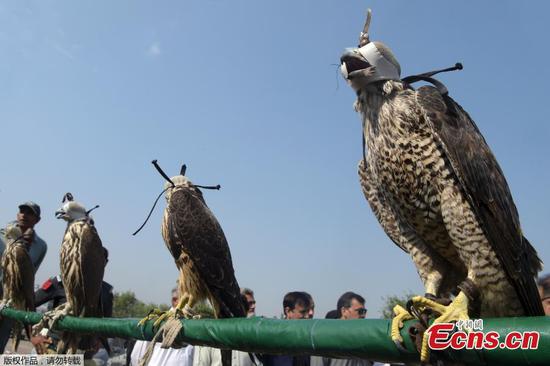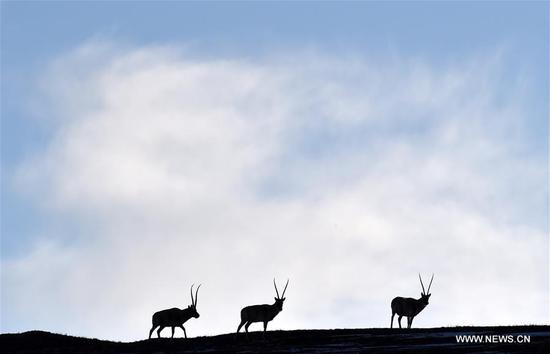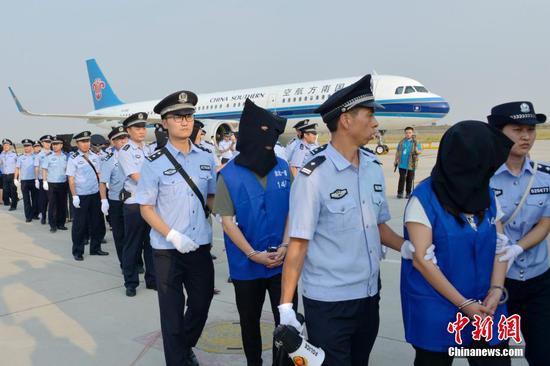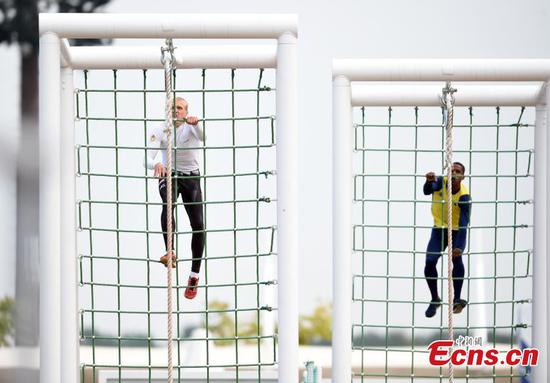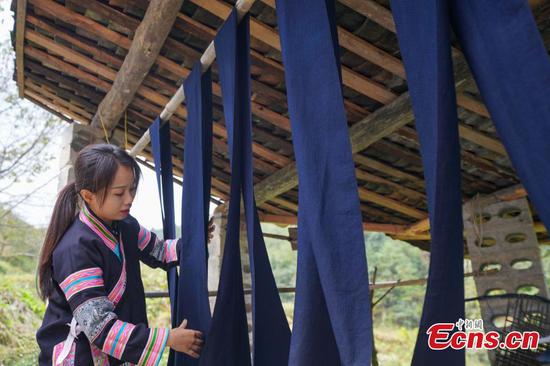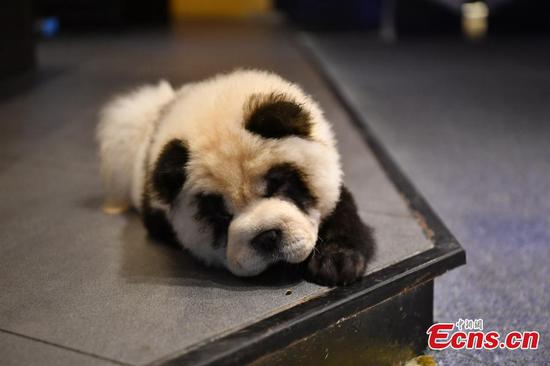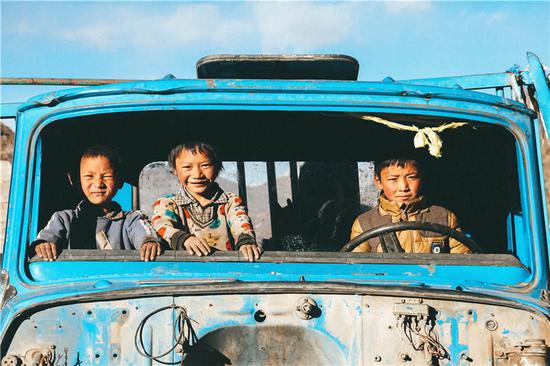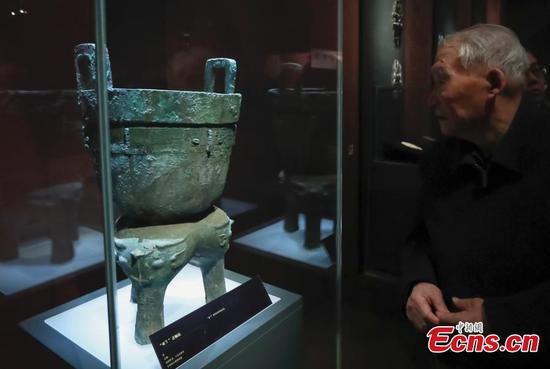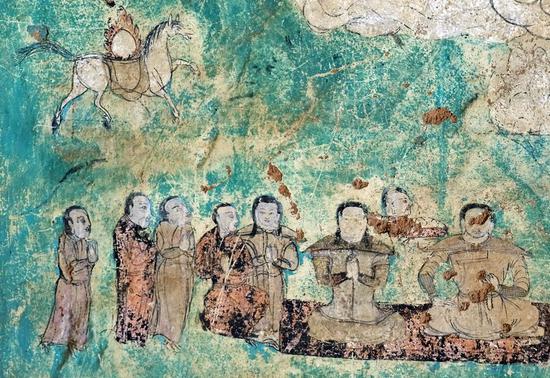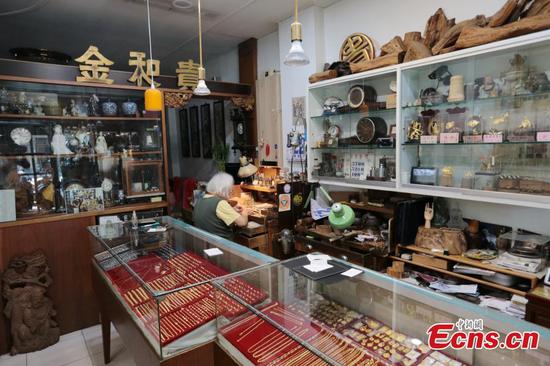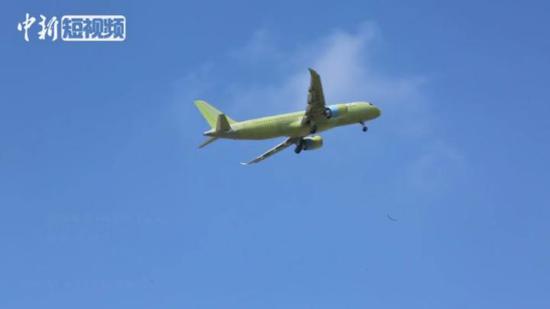
Dong Xiaobo, a professional breeder, has raised more than 1,000 pigeons in Beijing's Daxing district, some of them well-known breeds from Europe. (YANG XIAOJIA/FOR CHINA DAILY)
The tradition of using homing pigeons to send messages was once popular in many countries, and pigeon racing originated in Belgium in the 19th century.
In the 1930s, the sport was introduced to Shanghai from Europe. When the War of Resistance Against Japanese Aggression (1931-45) ended, some pigeons used by the military were left by the First American Volunteer Group, also known as the Flying Tigers, in Kunming, Yunnan province, and by Japanese troops in Wuhan, Hubei province.
In January 1997, the association joined the Federation Colombophile International, the worldwide organization for pigeon sports. This marked a turning point for pigeon racing in China, as participants started to interact with their overseas counterparts.
Huang Jian said that in 1997, the China Racing Pigeon Association only issued 5 million leg rings.
Official data show that in the past two decades, the industry has developed significantly, with more than 10,000 races now held in China annually, 25 million leg rings issued each year and a market size of over 20 billion yuan.
Huang Jian said it costs 15 yuan to register a pigeon for ordinary races, and the bonus paid ranges from 50 yuan to 2,000 yuan. In some professional races staged by clubs, the bonus is much higher, even reaching several million yuan, but it also costs more to register the birds.
Prices for homing pigeons vary, ranging from several hundred yuan to 100,000 yuan, with higher charges for champion birds, according to Huang Jian.
"Because of urbanization and environmental sanitation regulations in cities in recent years, some owners have had to raise pigeons in the suburbs. They have also had to build pigeon lofts that meet certain standards and get agreement from their neighbors," he said.
Pigeon owner Huang Libing said his birds have been trained to fly distances of at least 150 kilometers to prepare for races.
He initially trains them to fly 5 km before gradually increasing the distance once they become familiar with the way home. During the racing season, he gets up at 3:30 am to drive 150 km to release the pigeons at dawn. They often arrive home earlier than him, as he encounters rush-hour traffic.
Huang Libing reads 15-day weather forecasts for cities along the pigeons' route and has to be certain there will be sunny conditions so that they can perform at their best.
He said various factors govern the way pigeons perform in races, including the species, the way the birds are bred, their health and proper training.
"Pigeons overcome all kinds of difficulties to reach home. One of my pigeons broke its breastbone, but it made it home after a week.
"Just like an angler hoping for a fish to take the bait, I enjoy the process of waiting. I'm glad to see my pigeons land."
Huang Libing said that during the racing season some people spread large nets in midair to catch homing pigeons and sell them to other owners to make money. He is hoping that such illegal activities can be ended.
Zhang Jian, 50, has raised homing pigeons for about 30 years and has 40 birds.
In 1950, his father started to raise pigeons in their backyard in Xizhimen, Beijing. At the time, the area was next to farmland, where pigeons could hunt for food. There was no need to feed them, except in winter. Instead of using a cage, his father nailed several planks on a wall for pigeons to rest on.
In 1969, his father moved to Nanluoguxiang in downtown Beijing and continued to raise pigeons.
According to Zhang, competitions with neighbors were popular. The pigeons were released and observed to see those that flew the longest in the area. Sometimes Zhang's father and his neighbors went to the suburbs to fish and release pigeons, and their families would tell them later whose birds arrived home first.
"My father's generation raised local species purely for fun. Nowadays, there are many pigeon competitions throughout the year, with bonuses awarded. European species and cross-bred birds are popular due to their fine performance in contests."









